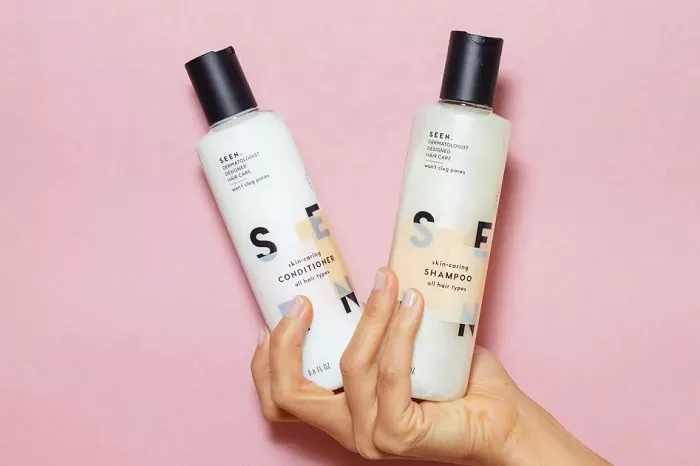When it comes to hair care, there’s often confusion about whether men with short hair really need conditioner. Short hair requires less maintenance than long hair, and some might think that conditioner is an unnecessary step in their grooming routine. However, conditioner can still offer a wide range of benefits, even for men with shorter hair. In this article, we will dive into the reasons why conditioner is important, how it benefits short hair, and what type of conditioner might work best for different hair types.
1. Understanding Hair Structure
The Basics of Hair
Hair is made up of a protein called keratin, which forms the structure of each strand. Each hair follicle produces a single hair strand, and the health of these follicles directly influences the appearance and texture of your hair. Understanding the anatomy of hair can help us appreciate why conditioning is important, regardless of hair length.
Hair Types
Men’s hair can vary widely in texture, thickness, and oiliness. The primary hair types include:
-
Straight Hair: This hair type tends to lie flat and can appear shiny. It may require lightweight conditioners to avoid greasiness.
Advertisements -
Wavy Hair: Wavy hair has a natural bend and can be prone to frizz. Conditioners that provide moisture and control are beneficial.
Advertisements -
Curly Hair: Curly hair is often drier and more prone to frizz. Rich, moisturizing conditioners are essential for maintaining curl definition and hydration.
-
Coily Hair: This hair type is tightly curled and often requires the most moisture and nourishment due to its structure.
2. The Role of Conditioner
What Does Conditioner Do?
Conditioner serves multiple purposes:
-
Moisturizing: It helps to hydrate the hair, preventing dryness and brittleness.
-
Detangling: Conditioner makes it easier to comb through hair, reducing breakage and damage.
-
Smoothing: It helps to smooth the hair cuticle, reducing frizz and enhancing shine.
-
Protecting: Conditioners can provide a protective barrier against environmental damage and heat styling.
Why Use Conditioner with Short Hair?
Even men with short hair can benefit from using conditioner. Here are some reasons why:
-
Hydration: Short hair can still become dry, especially if exposed to heat styling, harsh weather, or frequent washing. Conditioner helps maintain moisture levels.
-
Scalp Health: A healthy scalp is essential for healthy hair growth. Conditioners can help soothe and hydrate the scalp, preventing dryness and irritation.
-
Improved Texture: Conditioner can enhance the overall texture of short hair, making it easier to style and manage.
3. Do All Men with Short Hair Need Conditioner?
Hair Type Considerations
The necessity of conditioner largely depends on individual hair type and scalp condition:
-
Oily Hair: Men with oily hair may feel that conditioner weighs their hair down. However, using a lightweight conditioner can still provide benefits without adding excess oil.
-
Dry Hair: For those with dry or damaged hair, conditioner is essential. It helps restore moisture and improve hair health.
-
Normal Hair: Men with normal hair may benefit from using conditioner occasionally to maintain softness and manageability.
Frequency of Use
The frequency of conditioner use can vary based on hair type and personal preference:
-
Daily Use: Men with dry or curly hair may benefit from using conditioner daily or after every wash.
-
Occasional Use: Those with oily hair may use conditioner less frequently, perhaps every few washes.
4. Choosing the Right Conditioner
Types of Conditioners
There are various types of conditioners available, each catering to different needs:
-
Rinse-Out Conditioners: These are the most common and are applied after shampooing. They provide immediate moisture and detangling benefits.
-
Leave-In Conditioners: These products are applied to damp hair and left in without rinsing. They offer additional moisture and protection throughout the day.
-
Deep Conditioners: These are more intensive treatments designed for occasional use, providing deep hydration and repair.
Ingredients to Look For
When selecting a conditioner, consider the following beneficial ingredients:
-
Natural Oils: Ingredients like argan oil, jojoba oil, and coconut oil provide moisture and nourishment.
-
Proteins: Hydrolyzed proteins can help strengthen hair and prevent breakage.
-
Aloe Vera: Known for its soothing properties, aloe vera can hydrate the scalp and hair.
-
Silicones: While some may prefer to avoid silicones, they can provide excellent smoothing and shine benefits.
Avoiding Harmful Ingredients
Be mindful of certain ingredients that may not be beneficial for hair health:
-
Sulfates: These harsh detergents can strip natural oils from the hair, leading to dryness.
-
Parabens: Preservatives that may cause irritation for some individuals.
-
Alcohol: Certain types of alcohol can dry out hair, so it’s best to avoid conditioners with high alcohol content.
5. How to Properly Use Conditioner
Application Techniques
To maximize the benefits of conditioner, follow these steps:
-
Wash Your Hair: Start with a gentle shampoo to cleanse your hair and scalp.
-
Apply Conditioner: Take a small amount of conditioner and apply it to the mid-lengths and ends of your hair. Avoid applying it directly to the scalp, as this can lead to greasiness.
-
Leave It In: Allow the conditioner to sit for a few minutes to penetrate the hair shaft.
-
Rinse Thoroughly: Rinse the conditioner out with cool water to help seal the hair cuticle and enhance shine.
Tips for Short Hair
-
Use Less Product: Short hair requires less conditioner than long hair. Start with a quarter-sized amount and adjust as needed.
-
Focus on the Ends: Concentrate on the ends of your hair, where it tends to be drier and more damaged.
-
Experiment with Leave-In Products: If you find traditional conditioners too heavy, consider trying a lightweight leave-in conditioner for added moisture.
6. Conclusion
In conclusion, men with short hair absolutely can and should consider using conditioner as part of their hair care routine. Conditioner provides essential hydration, improves hair texture, and promotes scalp health, regardless of hair length. By understanding your hair type and choosing the right products, you can maintain healthy, manageable hair that looks great.


